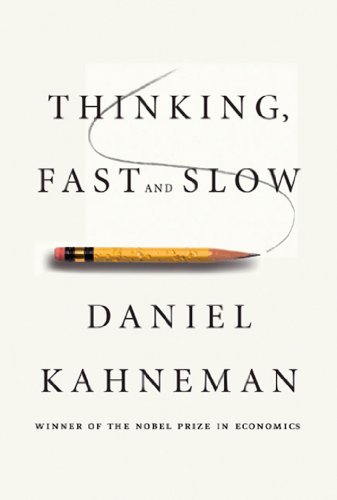Thinking, Fast and Slow by Daniel Kahneman Link to heading
Summary Link to heading
“Thinking, Fast and Slow” is a comprehensive exploration of human thought processes, written by Nobel laureate Daniel Kahneman. The book delves into the dual system theory of cognition: System 1, which is fast, intuitive, and emotional; and System 2, which is slower, more deliberative, and logical. Through a variety of studies and experiments, Kahneman illustrates how these systems sometimes work together and at other times conflict, leading to errors in judgment and decision making. The book covers concepts such as cognitive biases, the illusion of validity, prospect theory, and the dichotomy between experiencing self and remembering self, painting a detailed picture of why humans think and make decisions the way they do.
Review Link to heading
“Thinking, Fast and Slow” has been widely praised for its depth and accessibility in explaining complex psychological concepts. Kahneman’s writing is clear and engaging, supported by research findings and illustrative examples that make the content relatable and understandable. The book’s strengths lie in its ability to combine rigorous academic research with practical insights that reveal much about the human condition. However, some critiques point to its density, as the detailed analyses and numerous studies can be overwhelming for readers not accustomed to scientific literature. Nonetheless, its profound impact on understanding human behavior and decision-making cannot be overstated.
Key Takeaways Link to heading
- System 1 and System 2: Understanding the duality of thought processes helps to recognize biases and improve decision-making.
- Heuristics and Biases: Awareness of cognitive shortcuts and errors can help mitigate their negative effects in judgments.
- Loss Aversion: People tend to fear losses more than they value gains, affecting risk assessment and financial decisions.
- Anchoring Effect: Initial information can heavily influence judgments and estimates, often leading to skewed perceptions.
- The Planning Fallacy: People tend to underestimate the time, costs, and risks of future actions while overestimating the benefits.
Recommendation Link to heading
“Thinking, Fast and Slow” is highly recommended for those interested in psychology, behavioral economics, and decision-making, including professionals in finance, marketing, and policy-making. The book’s insights are valuable for anyone looking to understand human behavior better and improve personal and professional decision-making processes. Its thorough exposition of cognitive biases is particularly useful for those seeking to enhance their critical thinking skills and mitigate errors in judgment.
